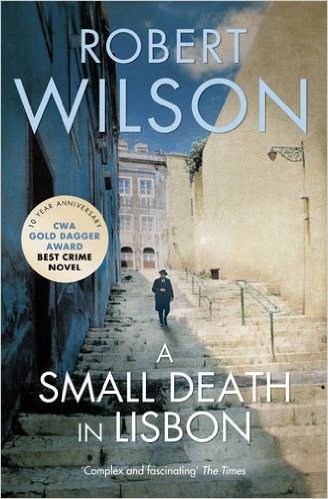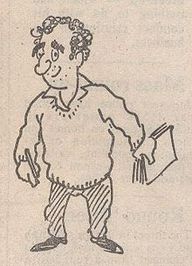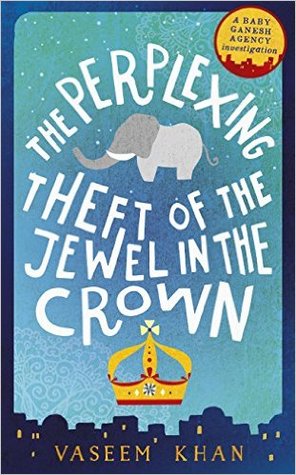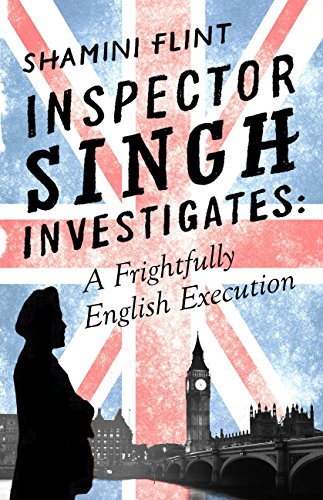I break my rule and write about a book I disliked, doing so in part to crystallise what it is that I did not like about, and why I tried so hard to read it.
I tried to read this book years ago, and was recently moved to try again since my interest in Portugal was kindled again a few months ago by reading about the Carnation Revolution of 1974 but my efforts to find Portuguese novels that I might like have failed.
Yes, I have read some by that Nobel Prize winner, José Saramago, but found them desiccated, didactic, and dull. In short, lifeless. They told me nothing about Portugal or any Portuguese.
Reviews of lists of Portuguese novels on websites did not help either where even the krimis were described by the deadly term ‘surreal’ that is code for incomprehensible and self-indulgent which some mistake for creativity. On such lists I found ‘Ballad of Dog’s Beach’ by José Cardoso Pires which I read and reviewed elsewhere on this blog. It did not inspire me to choose another title from such lists. As an indicator of nonsense the term ‘surreal’ is as reliable as the label ‘post-modern.’
Robert Wilson is routinely accorded the accolade of a best selling author on the covers of his many novels from major publishers. All hail. The reviews in credible sources are respectful, if not enthusiastic. Knowing that I know nothing, I tried again.

It has a split story line, then and now with some in-between, and the reader, I guess, is supposed to be puzzled about how they come together. Me, I just assumed some hocus-pocus would bring them together. I cannot abide this approach to story-telling because it puts responsibility on the reader to make sense of what is written. This joke is not for this folk.
The respectful reviewers say it offers a travelogue of Lisbon and that is what enticed me to read the book both times. So on I went, screen-by-screen on the Kindle. My dentist does not approve, all that gnashing, grittimg, and grinding of my teeth which will undo his good work. With the iron discipline for which I am famed, I quit — again — at 61%, according to the Kindle.
Here is what I found as I made my way to that 61%.
We have Klaus Felsen a German businessman forced to go to Portugal in 1941 to buy rare industrial metals for the Nazi regime and to try to prevent the British from getting them, too. It seems he is the only man for the job since he speaks Portuguese, learned from a few weeks with a Brazilian woman. Ah huh. Fluent no doubt. It is February 1941, and there is one reference to the Eastern Front, though there was not one until 22 June 1941. The hindsight is all to evident throughout.
Sometime in the 1990s we have world weary inspector Zé Coelho, who mouths gratuitous criticisms of the society he serves, and despises those who cooperated with the late and unlamented Salazar regime, a group that would have included most of the country. He wears his alienation on his sleeve. Everyone he meets is awful. Especially those with money. So it goes. When figures in police procedurals engage in this kind of cheap cynicism, my supposition is that the reader is to take it as social criticism. Ever the rebel, I take is as cheap cynicism.
There is a lot of coming and going in Lisbon of the 1990s, and I liked that. I used a Google map to follow some of it on the iPad. That kept me going as long as I did.



The book also features much sex. Both of the protagonists, Felsen and Coelho, are irresistible to every woman they pass. There is enough detail to satisfy a gynaecologist.
Felsen, the good German, also goes in for murder and torture, and these deeds are also lovingly described from anatomy textbooks: wires to the genitals of the helpless victim. No electricity, just wires. The thugs, these he kills with rocks.
Time passes in the back story from 1941 and Felsen remained in Portugal when the war ended. He gets even with all his enemies, in part, because of the love of Eva. Who? [Sound of violins over the screams of his victims,]
The Portuguese peasants Felsen enslaves to his smuggling operation are described in bestial terms that must give some armchair readers a frisson. Me, I thought how simple-minded such characterisation is. For a dose of reality read the nature poems of John Clare (1793–1864) a day-labouring peasant just like those in this story. If people do not live in cities and read books, they cannot be as fully human as … the author, the reader, the editor. Thugs live and work on Bond Street, too, and even in some universities, I am told.
The preoccupations with sex and money can be readily interpreted in two ways. The first is ‘give them what they want.’ If it sells, write it. Here we may see the hand of the publisher pushing the author along. The other is the projection of the author’s own fantasies onto his characters. Pick one.
There are no compensations in the prose. Much of it is workmanlike and gets us from A to A1. However, there is far too much that is overwritten. ‘Overwritten?’ one might ask. ‘What does that mean?’ Here are a few examples;
‘her knees looked tired’
‘an in articulate shriek’ from a closing door
‘an enclosed man’ who was waiting in the alley
his ‘breath was cigar streaked’
she rose on ‘strong legs’
the ‘walls drank in the evening light’
the school girls began an ‘elephantine dancing’
There are many, many more examples of this overwrought and meaningless prose. I just stopped highlighting them on the Kindle. Each time, this slow wit, had to read the sentence twice in the forlorn hope that there was a point to the prolix prose. Nope.

When I gave up I did take a look at the comments on GoodReads and was once again confirmed in the conclusion that it is pointless using that as a reference. The narcissism (look it up. Mortimer) of many comments allows me quickly to skip most entries, and the others read like support of relatives.
Nota Bene. We watched two episodes of the ‘Falcone’ krimi television series derived from another series by this same Robert Wilson set in Seville and found them gratuitously anatomical in the violence for no other reason than to get a restricted rating to make naive viewers think they were getting something hot. While we liked the travelogue of Seville, it was not enough to put up with the plucked eyeballs and roasted human flesh. The effort to shock is so adolescent.
I hesitated a long term before publishing this, but decided to get it out the door. Reading the imbecilic reviews on GoodReads stimulated me to add my two cents.
****
What I would like would be a krimi set in 1974 as the Carnation Revolution unfolded and in the heady-ing and confusing days that followed, catapulting Field Marshall Antonio de Spinola to the head of a committee of national salvation and driving the eternal Salazar regime into exile.
Perhaps such a book exists but I have not yet located it. The dictatorship in the person of President Marcello Caetano refused to abdicate to the upstart captains who led the uprising, and insisted on entrusting the government to a high ranking officer who, of course, had also to be acceptable to the upstarts. There was only one candidate, Spinola, whose public and private criticisms of the regime were known even if uttered sotto voce and published abroad. He did not want the job, the captains did not choose him, and Caetano did not want to concede, but the hour called the man.
Enter Spinola, pulled from one side and pushed from another. The captains wanted a quick result before their tissue thin conspiracy unravelled so they accepted Spinola as the only senior figure they could tolerate. He took on the thankless task as a last service to the country. No biography of him is available in English, or I would turn to that.
If a prospective writer wants the job, here are a few tips.
Make it linear. Have a protagonist who is not the centre of attention but a prism of others.
Also please emphasise Lisbon as a character in the story, not just a backdrop, its hills, it redolent history, the balcony flowers, the worn steps, its narrow streets, the ubiquitous churches, the funicular, the prayer apses on the twisted streets, the allure of the Azores, the stifling shroud of an ancient Catholicism, and the repression that hung over everything, the secret police, mysterious disappearances, political prisoners, the nearby Spanish border and the sclerosis-ridden dictator still crouched behind it, and the exiles in Brazil broadcasting back to Portugal.
Remember also that there were Portuguese military officers, serving and retired, in 1974 who had been volunteers in the Spanish Blue Division with the Nazis at Leningrad, including Spinola himself. Most of all, remember the three colonial wars Portugal was engaged in at the time in which Spinola alone had secured victories and made peace. Add the pirate attack by Portuguese exiles on the cruise liner the Santa Maria a few years earlier. In the larger environment there is the Cold War and the developing European Union. Rich pickings.
In the foreground perhaps the tension might spring from bringing together an odd couple, say an enemy of the regime with a defender, and each discovers something of value in the other. The stiff devout old guard police investigator who had done military service in Africa teamed with a youthful critic, maybe a journalist. The journalist discovers the police officer is serious and just what he seems to be, simple and honest, not a perverted pederast hypocrite. The officer discovers the journalist is a patriot who wants to elevate Portugal not a slavering communist set on destroying the country and raping nuns.
There are plenty of incidents to choose from, even before the radio music signalling the rebellion, and then later the military counter-coup, the subsequent communist effort to seize power as Lenin did in October 1917, the democratic descent into confusion. All this was in the cities, while in the countryside life continued to follow the rhythm of nature. Or did it? Maybe not on the Spanish border. Maybe not on secluded coastlines where small boats might land unobserved, perhaps from Brazil.
Add to this the reaction of Big Brother in Spain. Franco was still a factor, catatonic though he was.
I have watched some of ‘Capitães de Abril’ (2000) on You Tube without the benefit of English subtitles. Earnest, this I could see, but lacking in tension to this distant viewer.
Category: Krimi
Evariste Clovis Désiré Pel, biography
It is time that Chief Inspector Evariste Clovis Désiré Pel had a Wikipedia biography along with Jules Maigret, John Steed, James Bond, Lois Lane, and Xena.
He appeared full grown like Athena in 1979 (‘Death Set to Music’), Pel has had a long career in crime, crime-fighting, that is. the last outing was in 2002. His biographers have been John Harris, writing as Mark Hebden, succeeded by Juliet Hebden. Pel was a child during the German occupation, ten or less.
We shall start with that name. It is a cross to bear for Monsieur L’inspecteur Pel, who cringes whenever he is asked for his full name, say when renewing the driver’s license. In reply he hunches and mumbles to limit the number who hear. Three forenames is too many and none of them is particularly masculine, but the worst part is the third, Desired One — Désiré — a name usually reserved for girls.
His second most important characteristic is that he is in, for, and of Burgundy, and if possible never leaves it. Ever. Beyond Burgundy is, well, France (with the cesspit that is Paris) which is a foreign country to Pel, and beyond France lies darkness. In his moments of calm, few as they are, Pel savours Burgundy as Eden on earth. The trees, the patchwork fields, the stone farms houses, the blue tiles on roofs in the capital, the Palais de Ducs, the mellow yellow sun, the cuisine, the wine, all is perfection. He positively sings its praises, in his mind.
He is to the core a flic, and nothing but. ‘You’re nicked, you slag,’ snarled by Inspector Jack Regan would warm Pel’s heart. He would not understand the idiom but he would grasp the music of it immediately. Pel has risen through the ranks from the uniform service, where he stood in police lines while students from rich families threw rocks at him personally; and these students are now lawyers and doctors who fiddle their income tax, he is sure. Here is another Pel characteristic. He takes everything personally. From thence to Detective Sergeant, Inspector, and Chief Inspector. In the later role he has ten detectives to direct.
We meet Pel in his forties, he is short, slight, nearly bald with a few wisps of mousey hair, near-sighted with reading glasses pushed up on this head. Whatever clothing he dons at home, by time he arrives at the nick he looks like a hobo just off the rails. Even his best blue suit, the one he bought against the day, which day has not yet to come, when he receives a Légion d’Honneur from the President of France, becomes stained, creased, begrimed, and baggy as soon he takes it out of the dry cleaner’s paper. By the time he gets to the office, it looks like a sleeping bag gone wrong.
He is completely and totally addicted to Gauloise cigarettes, of which he smokes at least a pack of twenty a day, living in constant dread of running out, while promising that each one will be the last. Blind panic the strikes him when the prospect of running out arises.
Pel is an Olympic worrier. He mostly worries about his health. Those cigarettes! If he passes a person in the street who coughs, Pel is instantly paralysed with the fear that he is about to catch a mysterious mortal disease. Dr. Minit has long grown tired of his panics and laughs at him while offering a drink, thus confirming to Pel’s mind that he has little time left since the quacks never say if it is bad news.
If he is out of the office for long, he worries that the Police Judiciare will collapse without him, and so he is a frequent nocturnal visitor to the office. He is a lousy driver because he is always thinking about his cases or his health.
Despite squirrelling away in the bank nearly every franc that has come into his possession, he fears a life of penury, the more so when he retires on a police pension. This worry is despite the bank manager’s comment that Pel has a fortune in his account. He also fears he will be forced to retire all too soon since he is neither liked nor respected, and he does not understand the computer system that is coming online.
By some dark Faustian bargain, he has a live-in house keeper, one Madame Routy who exercises a domestic tyranny. In all of Burgundy she is the only person who cannot cook. She serves up sludge, called stew every night, which more often than not it is his only meal of the day. Worse, she watches television all day and all night with the volume at thunderous plus. Will his shabby house vibrate itself into destruction? He abides because he dares not rebuke her. She might quit and where else could he find a house keeper to live in his dilapidated house and work for the meagre pay he can offer. Moreover, her nephew Didier comes to visit sometimes and Pel likes Didier. When the boy grows up and enters the police service, Pel swells with pride before breaking into a sweat at the thought of all the dangers that will afflict Didier as a constable.
At the PJ he runs a tight ship. Few words of praise escape his lips. Requests for time off are met with ‘Non.’ He is bitterly jealous of his senior sergeant Darcy’s easy way with women, and positively livid that Darcy always appears to have just stepped out of fashion magazine, even when Darcy has been up all night on surveillance. So livid is Pel that to make himself feel better he searches for some fault to criticise in Darcy. He is even more angry because nothing he says phases Darcy who shrugs it off.
Pel loathes Sergeant Misset who combines being lazy with being stupid to a high order, but Pel can find no way to shed him from the squad where he spoils everything he touches. Pel bears a lifelong grudge against the traffic division which arranged for Misset to be transferred to his squad.
Then there is young Nosjean, the impoverished Baron de Troq, Lagé, the soon to retire Krauss, Claudie Darel whom he is sure will take his job away from him because she is terrifyingly smart, and then there is the Lion of Belfort who leaps into action at light speed: Annie Saxe, who is called La Lionne de Belfort for her mane of red hair and her origins in Belfort where there is gigantic statue in red sandstone of …. [Go on, guess.] Yes, a lion!)
Pel is a very effective officer, calm, decisive, and confident. In a crisis he knows what to do and how to do it. He rattles off brisk orders that give each officer a task and knits them together into a concerted action. While bemoaning his ill health, he works younger men and women into the ground.
Often he prefers to watch and wait, withstanding bureaucratic, political, and media pressure to act. His steely resolve in such circumstances inspires the members of his team, while he assumes they despise him.
He speaks a passable English. His father insisted that the children, Pel and his two older sisters, learn English on the assumption they would go into the wine business. Though he overflows with all the prejudiced stereotypes about the Les Rosbifs, he sits in a ‘comfort anglais,’ drinks scotch, and savours Yorkshire pudding on occasion. His one effort to prepare Yorkshire pudding bore a passing a resemblance to the Battle of Somme, such destruction did it leave in the kitchen for Madame Routy’s return!
His solitary life is lightened by the interest of the widow Madame Geneviève Faivre-Perret who seems to enjoy his company. Darcy was instrumental in their liaison and occasionally has been known to observe their affair with an bemused smile. While Pel is desperate for Madame, he is also terrified that he cannot afford to marry, to go out to dinner at a good restaurant, to buy a new car, to move house, and he cannot possibly change, much as he would like to do so. He worries himself sick about telling her his whole name!
He tries many things to please her, most of which backfire. He is as tongue-tied and confused as a teenage boy where she is concerned. All of this seems to amuse her still more. His daily resolve to quit smoking takes on an added urgency because he is sure she disapproves, and the fact that she has never said so, that being the final proof! His efforts to quit smoking are many and useless.
Pel has no interest beyond policing and so Darcy speculates on what Pel could find to talk about with Madame Faivre-Perret. By the way, Darcy lets Pel’s frequent bouts of bad temper slide off without reaction, which often infuriates Pel all the more. Pel is indeed irascible.
Pel sometimes dreams of being a Maigret, stolid, implacable, all-knowing, infinitely patient, imperturbable with a Madame Maigret to give him coffee on 3 a.m. call-outs and fill him with delectable home cooking. Ah… He entertains this fiction most often when swaddled in all the wool clothing he has, looking like the Michelin man, standing a midnight watch on a windswept hilltop in a January winter where the temperature is sub-zero and the gale is Siberian, or perhaps Arctic. Worse, the wind makes it impossible to smoke! Another of Darcy’s annoying characteristics is that he does seem to mind the weather — hot or cold, wet or dry — as he waits it out next to Pel.
‘Pel and the Predators’ (2008) by Mark Hebden
Back in Burgundy with the irascible Evariste Clovis Desirée Pel, Inspector, Police Judiciaire. There are a score of these titles. He is short, with a few of remaining strands of mousy hair stuck to his bald pate, like sparse seaweed on a rock at ebb tide, chronically addicted to smoking two packs of unfiltered Gauloises a day, morbidly afraid of penury, socially inept, near sighted, a hypochondriac, and bad tempered for these and many other reasons. He takes out his bile on criminals who upset the idyll of Burgundy, from which he never willingly departs.

A dead girl who washed up on the distant Breton shore seems to have come from god’s country, Burgundy, and Pel makes routine inquiries that soon prove to be anything but routine. He reluctantly leaves Burgundy to travel to Breton to be briefed. When there, he felt he was standing at the edge of the world. Beyond Breton, beyond France, there is only blackness. His interview with the local detective, Bihan, is priceless. This Bretonnais is an imaginative type who has speculative backstories for everything and this elaboration drives Pel to his cigarettes and beyond. Eventually the point is made.
Back in Burgundy two teenagers exploring each other and a cave find another unidentified body, long buried there, and Pel has to identify it, too. In time these two strands come together, as readers know they must. The two dead women have something in common, though not what one might think. No spoiler.
These titles are police procedurals and there is much plod, and Pel has a team of officers, now enlarged because he has been promoted to Chief Inspector, which elates him, briefly, before he starts thinking about the greater responsibility, and then realises the promotion does not carry a pay raise, then the gloom and doom takes over. Some of the officers are bright, others are hardworking, and a few are lazy and stupid, and Misset is both, but somehow Pel has to work with them all, despite his recurrent urge to hit detective Misset with anything to hand if only to see if he stirs when struck. Pel is sure that Claudie Darel will one day push him out of his job. She is so smart, and knows how to use computers! He has learned to listen to her interpretations of facts.
Pel is some character. Somehow he has entered into a Faustian bargain with Madame Routy as his housekeeper and cook. He does not remember hiring her but there she is and he cannot fire her, since she seems to come with the house. In Burgundy she is the only person who cannot cook. After serving up indigestible stews each night, she plonks on the sofa and watches television at full volume. Ever the worrier, Pel suppose the vibrations from the telly will destroy his house all too soon, leaving him homeless as well as destitute. Meanwhile, he is sure he has some wasting disease.
 Mark Hebden
Mark Hebden
Into his miserable existence, lightened all too seldom by the chance to bang up a crime, comes the widowed Madame Faivre-Perret, a very successful businesswoman, who seems to have picked him for her next husband, or so Pel fervently hopes when not terrified by the changes marriage would bring to his (dis)ordered existence, and how much it will all cost! Pel is an Olympic worrier. But when he is with her, at lunch, in the cinema, strolling the avenue, he feels ten feet tall and light as air! He even manages not to smoke for periods of ten minutes or more, though she has never said anything, he is sure she disapproves. When he is with her he even smiles! A Pel smile is a rare thing, indeed.
The only other light in his life is the Madame Routy’s nephew, Didier, with whom Pel sneaks out of Madame Routy’s baleful sphere to have snacks at the bistro rather than eat her sludge. How Pel’s shrivelled little black heart sings when Didier, now a teenager, says he wants to be a policeman, and then Pel starts to worry about all the bad things that can and do happen to flics. Can that man worry!
‘Morgue Drawer for Rent’ (2012) by Jutta Profijt
This is the third instalment in this mile-a-minute series that combines science and ectoplasm. Herr Coroner Dr Martin Gänsewein remains saddled with Pascha, late car thief extraordinaire and murder victim. Of all the cadavers in all the pathology labs in all of the world Martin had the bad luck to slice into this one cadaver, complete with a ghost, who can communicate only with him, and who does, often.

They are the odd couple to end odd couples. Pascha, phantasm though he be, retains his lowlife interests and four-letter word vocabulary, while Martin is a round-shouldered, mumbling, introverted, shy, rumpled, near-sighted, hyper-conscientious scientist who eats lettuce leaves, flosses between his toes, and does not drink alcohol. ‘He calls that life,’ says Pascha with a snort.
In between solving crimes in the first two books, Martin spends much time, effort, and money in the vain attempt to screen out Pascha. Microwave transmissions disrupt Pascha’s atoms, he discovers, but harnessing those at home proves to be challenging and impossible at work. Having a ghost shouting in his mind has disrupted Martin’s slow and uncertain love-life with Birgit, and the fallout has confused his colleagues and friends. At times Martin oscillates between the hysterical and the comatose, caused as we and he know by Pascha’s hectoring.
Pascha can also interact with the voice recognition software of Martin’s computer which he uses to write an account of his adventures that he submits by email to a publisher, without Martin being the wiser. Pascha’s career as a writer is one theme in this romp. He is delighted to be published but angry that the work is called fiction!
Another theme is the new manager of the Forensic Institute of Cologne who is an MBA, charged to increase efficiency and cut costs to the bone. That he knows nothing of the legal environment in which the Institute works, that he cares nothing at all about pathology, that he knows nothing about preserving police evidence, these facts do not cause him to miss a beat. He simply delegates responsibilities to others while undercutting and undermining them. Ah, corporate life! The key performance indicators click over. At least he is no hypocrite, he does not mouth platitudes about the staff, he simply shafts them, belittles them, and shows open contempt for them. A refreshing honesty in that.
All of that is credible and the author must have worked in a large organisation where she observed this kind of McKinsey-speak management.
In no time at all the new boss, whom one of Martin’s colleagues nicknames Piggy Bank, is renting out the morgue’s facilities to funeral directors, who come and go at all hours of the day and night. Soon enough, things go missing, like the body of a murder victim. In the subsequent search for a scapegoat, Piggy Bank’s eyes land on the inoffensive, compliant, and meek Martin. He accepts his fate with resignation, while Pascha is outraged!
Meanwhile, Herr Piggy Bank is completely without scruple or shame. See, I said realistic.
Another of his innovations is to charge the police for consultations with the pathologists. In no time at all Martin has violated Piggy Bank’s many new rules and is dismissed. That frees him to probe more and he does but only because Pascha drives him to it.
Meanwhile, Pascha has stumbled onto the reason for the body snatching, and alerts Martin. It is more complicated than that, of course, because Pascha has fallen in love with Irina, a doctor, and Birgit has laid down the law to Martin about his strange lapses (when Pascha is yelling at him). On top of the that Cologne is hit by a relentless heatwave that makes everyone’s life a misery.
Pascha’s efforts to communicate his feeling to Irina are … extreme. The incorporeal and corporeal just do not mix. As always, his efforts backfire on Martin.
Piggy Bank is a marvellous character, the very model of modern major manager. He is tanned, even in winter we are sure, taut of skin, brisk of manner, clear of eye, devoid of conscience, free of knowledge, completely teflon, seen only when he wants something, totally indifferent to the staff who are only costs, obsequious to his superiors, haughty to underlings, tasseled of shoes, blazer-wearing, and he speaks but key performance indicators, single-mindedly pursuing his own advancement. Sound familiar?
It all comes together, and it all comes out in the wash. The plot is ingenious and kept me guessing until the author produced the rabbit. Then, ‘Voila!’ It all made sense. Several blue herrings added to the misdirection.
 Jutta Profijt
Jutta Profijt
Not all the loose ends were tied. When Martin, on Piggy Bank’s orders, refused to talk to police officer Jenny, she storms off to have it out with Piggy Bank, and….. I don’t know.
The self-deprecating joke the book ends with is delicious. Toilet brush indeed!
‘The Perplexing Theft of the Jewel in the Crown’ (2016) by Vaseem Khan
To coincide with a state visit by Queen Elizabeth II the British Crown jewels go on display in Mumbai. The wing of the museum where this display will sit is specifically built for the purpose to make it thief-proof but attractive for visitors. Any reader can infer the rest.

Detective Inspector Chopra, retired, sworn enemy to all crime, is an early visitor with his wife Poppy. But twenty visitors at a time are admitted to the inner sanctum where the crowns, orbs, tiaras, maces, and the Koh-i-Noor diamond are displayed. By the way, ‘Koh-i-Noor’ means ‘mountain of light.’
As Chopra inclines his head to read the card with one display his gaze travels past a face on the other side of the glass case, one that seems familiar, then the lights go out, both in the room and in Chopra’s head, while in the darkened room a gas immobilised everyone even as loud noises faintly registered on those losing consciousness.
Yes, the Koh-i-Noor diamond was taken, and nothing else, in the raid. The back wall of the room blown in (or was it out?) and the unbreakable glass in the case was broken. How could this happen?
When dusted off, Chopra ponders all of this in the back of his restaurant that caters to police officers (who are enemies of crime, and that criterion excludes quite a few) with Ganesha, his pet elephant. Poppy manages the restaurant and she and Chopra have all but adopted the one armed bus boy Irfan, who in turn dotes on Ganesha. Only Chopra’s mother-in-law remains a blue-bottle fly in the ointment, a very conspicuous one since she runs the front of the house at the restaurant, intimating the hardened officers who arrive and infuriating the chef with her interference.
The response to the embarrassing theft of the crown jewel is to slam-up a scapegoat immediately. The key performance indicator is thus satisfied. Who better than the hapless police officer who was responsible for security, an old comrade-in-arms of Chopra who is drawn into the case.
Chopra’s detective agency has prospered for there are many straying husbands to watch and young daughters who may be keeping the wrong company, but while profitable these matters are dead boring, though Ganesha has proven to be an ace at surveillance. He never tires, never blinks, never loses concentration. While Chopra naps in the specially designed baby-elephant transporting van, Ganesha keeps watch and nudges Chopra into consciousness when the target moves. Only in the streets of Mumbai would passers-by not notice an elephant.
To handle the routine cases, Chopra recruits his one-time senior sergeant who has dismissed from the police force by a jealous superior for no reason at all. While the sergeant has no education or training, he knows the streets and people of Mumbai better than anyone else, and his loyalty and dedication are unalloyed. He makes light work of even some tricky cases with Poppy’s help, while Chopra is drawn more deeply into the matter of the crown jewel.
His conversations with the Scots forensic officer that the Brits dispatched post-haste to the scene are amusing examples of culture clash, each lapses in the professional patois and linguistic idioms of their countries to the incomprehension of the other. When the Scot is describing the one-two-three boom of the explosive used, he caps the story with ‘and Bob’s your uncle!’ Chopra’s looks around for Bob. Then he hesitates and says he has no uncle Bob. The Scot thinks this might be a snide remark, but …. We should have heard more from this Scot later in the book but we do not.
Instead we get the red-faced, gigantic, humourless Inspector of Scotland Yard who shadows the investigating Indian officer, whom Chopra knows to be as incompetent as he is corrupt. The Yard Inspector seems to accept that Indian officer’s lead in arresting the security manager, i.e., until circumstances, involving an elephant, throw them together and he tells Chopra that the investigating officer is nutter who ought to be in the slammer himself instead of trying to beat a confession out of a fellow officer. They make an odd couple sort of alliance, pool their evidence and suspicions, and cooperate in an elaborate charade that reveals all. It involves a very large cake, but that is only the beginning. No spoiler.
 Vaseem Khan
Vaseem Khan
The touch is light though some of the material is dark, indeed, and Poppy has her own investigation among the cut-throat world of private high schools. She is ably assisted by the sergeant who has seen through many lies and sees through those told in the hallowed halls of learning.
Dan Kavanagh, ‘Putting the Boot In’ (1985)
A krimi set in the world of British soccer. Our principal is Duffy, onetime fourth-string goal keeper and retired police officer. His retirement from the force was involuntary. Ahem. This is the second or third title in a long-running series.

There is quite a bit about the beautiful game, which passed over my head. I liked the ambiguous attitude and behaviour of the owner of the third division team at the centre of the mystery. If the team is relegated, well, he will sell the ground for a commercial development and, perhaps, break up the team. If the team has a few wins and hangs on, well, then he will stick with it long enough to sell it to another punter at a good price. Win-win for him. Not so for the fans whose team may disappear. Not so for the manger who will be blamed for relegation. Not so for most of the players whose fortunes are tied up with this team; there is not a lively market for fourth division players. A few of the better players will get other offers.

Some of the players are involved, along with the desperate coach for whom relegation of this team would be the end of his credibility and career in the Old Dart. He is so desperate he hires Duffy and pays him out of his own salary, which amuses both the owner and Duffy.
Duffy, per the back matter, is AC/Dc on sex. But here his battery is flat.
Someone has been nobbling the players. One has his leg broken in a choreographed mugging, while another is set up on a sexual assault charge. Duffy to the rescue. Well, sorta. In the end the leg will heal and the sex charge lapses when the complainant decamps, perhaps, because of Duffy’s pressure, or perhaps because the punter who paid her in the first place lost interest. Like life, it is unclear.
Duffy lives with Carol but that seems to be all. She has access to some police computers and that comes in handy when he can talk her into using that access for his purposes. Not often that.
Trouble is, I found the characters monotonous. They all blended. It seemed like a very long episode of ‘Minder.’ Neither much plot, tension, nor momentum, but some good one-liners.
 Dan Kavanagh
Dan Kavanagh
I came across this title on the shelf in the Academic Bookstore across from Stockmann’s in Helsinki, and snapped the cover. Later I said hey presto and got it on the Kindle. I had no wish to carry the paperback around.
‘Aunty Lee’s Delights’ (2013) by Ovidia Yu
A light weight krimi set in Singapore. ‘Light weight’ is the kind of krimi I like. Not too serious, not too violent, not too graphic, and not too demanding on the little grey cells. I will admit of exceptions like Ross Macdonald and Georges Simenon, but they are few.
This is the first in a series focused on Aunty Lee’s home cooking restaurant in the island city-state of Singapore. Madame Lee is a woman of substance but she loves cooking and running her small restaurant for a crew of regulars since it is far off the beaten tracks in Singapore. She also has a long established and island-wide network of cronies and contacts, some of them from her late husband’s business empire. The final ingredient is her nose for news, i.e., gossip.

The fire is lit when the plastic wrapped dead body of a young woman washes up on one of Sentosa’s beaches. ‘Sentosa’ means peace and tranquility and tidal corpses do not fit the tourist board image. Sentosa also generates enormous income from the twenty million visitors a year who go to this Asian values Disney-like land.
Aunty Lee gets along well with her stepson Mark, who is unable to emulate his father’s business success, but not with his insufferable wife, Selina. She was so insufferable in the early pages I thought, applying years of viewing episodes of ‘Midsomer Murders,’ that she would be the first victim. Alas, no. Though she does largely pass out of the story, or my reflexes have improved and I managed to flip the pages upon which she appeared so quickly I did not notice. I did enjoy a smile when she reappeared toward the end, and the villain slipped her knockout drop so that we readers did have to endure more of her endless verbal and sub-verbal tirades. What’s her problem? She is rich, but not rich enough. And never will be.
Madame Lee’s crime-busting irregulars include Nina, her Filipino maid, and Sergeant Salim, a Malay Muslim, in a city of Chinese Christians and a few others as she pursues the Sentosa murderer. When the victim is identified it is someone she knew. Then there is a second…. Also known to Aunty Lee. This is too much! It’s personal!
I learned quite a bit about the legal status of guest worker maids in Singapore. Sergeant Salim’s outsider status has advantages and disadvantages, as he well knows, and he is learning to capitalise on the former, and gets a few tips from Aunty Lee about managing the latter. That maid, Nina, has her own network to bring to the table.
There is some to’ing and fro’ing in the miasma that is Singapore. A major plot concerns gay couples, and coupling, in Singapore, where it is ILLEGAL! That seemed an odd foundation for the series, though it is well handled, and by the smoke and mirrors of authorship Sergeant Salim is never directly confronted with this crime.
The villain was not hard to spot for us hardened krimi readers but how he came into contact with the two women and dispatched them was neither convincing nor interesting. It also seems to me that early on we had far too much of the egregious Selina for no other purpose than the relief at her subsequent absence. She played no part in the plot. Yes, I now about the false text message but the egregious Selina was not essential to that.
 Ovidia Yu
Ovidia Yu
These quibbles aside, I shall certainly read the second in the series.
In my many business trips to Singapore I never made it to Sentosa. I did walk through the Raffles lobby once and shopped for underwear at the Marks and Spencer, and have since stuck to the M&S house brand via email order. I rode around on the red bus once. Loved the Aladdin’s Cave of the Mustafa Centre, especially before it got all cleaned up. Battle Box in Channing Hill was a grim reminder of the War, as was the replica Changi Chapel. [Moment of silence.]
I had a memorable Thai meal in Singapore in which I made a fool of myself. Long story. Short version: having traveled in Thailand I thought I knew Thai food. Wrong. On all my visits in Thailand the hosts always knew I was coming and all the places I stayed catered, I later realised, for the western palate. The meals in university restaurants and hotels are not the real thing. But place we went in Singapore was! I was hors de combat quick smart.
‘I Shot the Buddha’ (2016) by Colin Cotterill
Siri Paiboun is a retired medical doctor in the Laos of 1970s when it had plunged deep in the red water of communism. During the long struggle to reach that water, Dr Siri was with the patriots in the red alliance, saving many lives in battles with the French, the Americans, the Thais, and the Vietnamese. Many survivors of those wars are grateful to him.

In the red dawn, elderly and banged up from his years of hardship in the jungles, Siri became the national coroner. There are many bodies buried throughout Laos and Dr Siri unearths more than one, not all of whom were killed in the line of duty much to the chagrin of great and (not so) good of Vientiane.
This latter career is the spine of this series, now in its eighth title.
The time machine of these pages offers a travelogue to Laos of the 1970s, an impoverished, depopulated, ideologically-driven polity surviving with broken-down Soviet equipment, dealing with American sexual diseases, living off smuggling across the river to Thailand, and coping with the ancient spirits of the land.
The books have the form of a murder mystery which is salted with more and more elements of fantasy as the series has continued.
Dr Siri is a medium for the spirits of Laotian myth and the undead of those killed in the many wars of the land. Not only does he see ghosts now and again, he also negotiates with them.
Ghosts are not part of the Five-Year Plan, the Comrade Doctor is repeatedly told. But what choice does he have, when the ghosts appear. He has to answer before the spirits makes things worse.
There are many caustic comments on the corruption and stupidity of the stultified regime, consisting many of the dregs of the society jumped up to the top without either ability or experience but a manual of communist clichés that fit no occasions. This is no accident because the fraternal very big brother, Vietnam, prefers a crippled and compliant regime on its border.

During the course of the previous novels, Siri has gathered around him a group of associates. First and foremost is Madam Daeng, an entrepreneur of noodles, Phosy a frustrated police officer, nurse Dtui whose talents exceed the imagination of her formal superiors, and Mr. Geung, the Mongoloid janitor who simplicity cuts through subtrefuge more than once.
That is the inner party. They are also joined from time to time by others like the mad Indian, Ravi, who stands in the river for days at a time, and others who idle around the noodle bar in the hope of alms. Since Siri married Daeng and moved in with her, he has turned his house into a homeless shelter with all manner of residents.
One resident was a Buddhist monk who then disappears after leaving Siri a cyptic message about a new Buddha. Why did he leave and where did he go? To find out, read the book.
 Colin Cotterill
Colin Cotterill
The early titles in this series had zest and clever plots along with all those colourful characters and travelogue. The eighth entry at hand has neither zest nor wit. The energy level is so-so and the plot … what plot? Whenever a plot thread dissipates, a ghostly spirit steps in and re-sets. Each such episode serves only to allow the author to take some very cheap, Bill Bryson-like shots at any one and every one, from Thai army officers, to monastery abbots, bus drivers, Laotian officials, rice farmers… This adolescent humour at the expense of defenceless others does not long sustain this reader’s interest. It reads like it was grind to write; it is to read.
‘Inspector Singh investigates a Frightfully British Execution’ (2016) by Shamini Flint
The overweight, crotchety, curry gobbling, beer swilling, stained necktie wearing, disheveled, immaculate tennis shoe wearing Sikh inspector of police is on the job again. Hooray! This is the seventh title in the series.

Singh is a Singaporean, though many there deny it, most of all his superiors in the police force, who repeatedly send him on foreign assignments, like the one in this story, to get him our of mind and sight. He is indeed an ambulatory eyesore, a fact that he is quite comfortable with.
Singh goes to London on an exchange program where he is assigned to review community policing! Those who know Singh, know what he thinks of that. Sitting at a desk reviewing case files is not what he does.
The sojourn is made all the more difficult because Mrs. Singh, she of the curries, has come along, too, over his prostrate body for he tripped over her suitcases. Her unnumbered family has many colonies in London which she plans to visit bearing gifts.
While he finds plenty of good curry in London, and that is crucial, he also finds….. While the formal assignment is a report no one will read, he soon becomes aware of a hidden agenda. Someone wants an investigation of one cold case, and preferably done by someone who is not as rule-bound as the Bobbies have to be for fear of offending anyone in a community. For that kind of job Singh is just the man!
In between enormous curry meals that leave him nearly comatose, Singh barges around asking the questions the ever so polite Bobbies dare not ask, least they give offence to some member of the community. It is quickly apparent that many lies have been told and that further piques his interest.
 Shamini Flint
Shamini Flint
The mix of the serious and the comic in these krimis is disconcerting to this reader. Much of this krimi is pretty grim. Not to my taste. But much is jocular and light.
‘The Seven Symphonies: A Finnish Murder Mystery’ (2005) by Simon Boswell
A police procedural set in contemporary Helsinki, where we spent a week in 2016.

The violin proves to be a dangerous instrument when three young women carrying violins are murdered one after another, the first found at the Sibelius monument. Been there.

The police investigation seems to involve only three officers, and they issue no public warning about those nasty violins.
There are many red herrings, some very satisfying.
There is also quite a lot about music, particularly Jean Sibelius’s music. While it is rather technical, it is informative.
The author tries hard to relate the music to the plot but it does not work for me.
While much of the policing is interesting and engaging, I did find the principal officer, Miranda, very immature. Her hormones are more decisive than her grey matter.
However the profile of the culprit, that part was intellectually interesting.
The victims and their murderers are described in more detail than suits me.
The denouement left me cold. The villain was obvious for a long time to the reader, if not to Miranda. The complication of the religious zealot made little sense to this reader.

The author has other musical titles.
